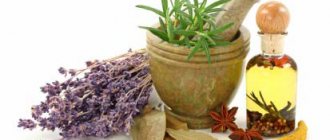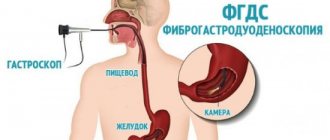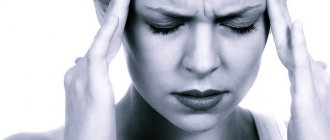In medical science and practice, a pressure level of 150 per 80 mmHg can be called mild hypertension (or hypertension, if the cause is the cardiovascular disease of the same name).
Moreover, the systolic (upper) pressure of 150 in this case is 70 mmHg higher than the diastolic (lower) pressure, which is quite a lot (normally the difference is no more than 50 mm). In such a situation they speak of isolated hypertension. This condition is much more dangerous than the classic version of high blood pressure.
According to the standards defined by the World Health Organization (WHO), a reading from 90 over 60 to 140 over 90 mmHg is considered normal. Art. with minor deviations in one direction or another.
In this case, the concept of the so-called working pressure or the individual norm of a particular patient is taken into account. It cannot deviate by more than 10 mmHg. Art.
What is normal pressure and how to measure it correctly
In a middle-aged person, normal blood pressure ranges from 120-129 to 80-84. These limits are average and for some people the normal pressure may be 108-119 per 70-75 or 125-130 per 85-95. Blood pressure can rise to 150/100 in people for various reasons, but to understand that this is a pathology you need to know your usual blood pressure. To do this, it must be constantly monitored by measuring it with a tonometer.
The technique for measuring blood pressure is as follows:
- Sit on a chair or sofa, take a comfortable position.
- Relax and place the blood pressure cuff on your upper arm (just above the elbow).
- Carry out the measurement according to the instructions for your device (press the start button, or inflate the cuff yourself and watch the needle oscillate).
If the pressure is 150 to 100, then calm down and remeasure it after 10 minutes. If it has dropped, then short-term jumps to 150 to 100 could be a sign of stress, and if it persists and calm and relaxation do not help, then you need to look for the cause.
If, after measuring your blood pressure for several days, you see a picture of 151 over 101 or even 158 over 110, then this is a sign of hypertension. There are several stages of pathology:
| Stages of hypertension | Upper pressure | Lower pressure |
| Norm | Up to 130 | Up to 90 |
| Stage 1 | 140- 159 | 90-101 |
| Stage 2 | 160-180 | 102 -110 |
| Stage 3 | Over 180 | Over 111 |
Taking measurements at home is comfortable and convenient, but if there are problems with your blood pressure, then you must see a doctor. This is especially important for people who feel normal with a pressure of 107 over 60, since for them a jump even to 149 over 93 is already a pathology.
Along with your blood pressure, immediately measure your pulse. The frequency of beats per minute can tell you why the pressure has increased to 150 to 100.
Causes not related to diseases
Relatively physiological factors in the development of the problem are also possible: for example, puberty (during the puberty of a teenager, blood pressure fluctuates, it needs to be monitored).
Menstrual cycle (in any phase), pregnancy (gestation is associated with a temporary increase in blood pressure or the reverse process, which is considered completely normal).
Menopause or premenopausal period. The more severe the gynecological history, the more complex the course of menopausal syndrome is.
Pressure danger 150 to 100
If the pressure is 150 over 100, many people don’t know what to do. First you need to determine why blood pressure rises, what it is connected with and whether there is a risk to health. If the blood pressure has risen in a child or teenager, then medical attention is definitely needed.
Adults often accept this pressure as the norm, and even give it the name “working pressure.” But the consequences of such a negligent attitude towards one’s health can be disastrous. If the indicators remain above 152 to 98 for a long time, this increases the risk of stroke and heart attack.
This pressure is especially dangerous during pregnancy. Women with high systolic and diastolic blood pressure should be constantly monitored by a doctor. It is not recommended for a pregnant woman to take medications on her own, as they can negatively affect the fetus.
Any pressure above normal needs to be brought down. Is it dangerous? Yes, but you should not self-medicate. Constant hypertension is a sign of a disease, and you need to treat it, and not take a pill for blood pressure and forget about it until a new attack occurs.
High blood pressure tablets - medications to lower blood pressure
In addition to folk remedies for lowering blood pressure, there are medications that are highly effective. Among the most common:
- Verapamil - stimulates the supply of oxygen to the heart, regulates vascular tone. For acute manifestations of hypertension, it is administered intravenously. The frequency of administration and treatment schedule are prescribed by a specialist on an individual basis;
- Captopril - normalizes the activity of the respiratory system, reduces the load on the heart muscle and blood vessels. Has a limited number of contraindications. Can be prescribed to people suffering from diabetes and young children, including newborns. The treatment schedule for hypertension is prescribed by the doctor individually for each patient;
- Methyldopa is a drug of the latest generation. It is distinguished not only by its high efficiency, but also by its almost absolute safety. Unique in that it can be prescribed to women who are pregnant;
- Runatin has no contraindications. Normalizes heart rate, as well as the activity of the central nervous system.
In addition to the listed medications, there are several dozen more tablets, pills and medications in other forms of release, the use of which helps to normalize blood pressure. But experts warn that self-medication with regular increases in blood pressure can be very dangerous. Therefore, before buying any drug to lower blood pressure at the pharmacy, you should consult with your doctor.
Causes of a one-time jump in blood pressure levels
One-time increases in blood pressure up to 150/100 are quite rare, but there are also reasons for this:
- Under stress, blood pressure surges are a constant occurrence; even after ordinary injections or other unpleasant manipulations, blood pressure may rise.
- Sodium salts delay the removal of water from the body, which leads to poor circulation and increased blood pressure. If you ate a large amount of salt in the evening, you may feel a jump in the morning.
- Those who think that beer and other alcohol lower blood pressure are mistaken. In the first minutes after taking it, the blood vessels expand sharply and the readings drop, but after half an hour a sharp reverse process occurs, due to which the pressure can even jump to 160 to 103 and higher. After drinking with a hangover in the morning, the increase in indicators is noticeable, and additional nausea and headaches only make the situation worse.
- Blood pressure may temporarily increase due to excessive fluid consumption, especially clean water. The load on the kidneys increases, which is why the jump occurs.
With a one-time increase in pressure of 150 to 100, there is no need to panic, the main thing is to restore your usual lifestyle and establish the balance of the body.
Useful tips
To get rid of hypertension you need to reconsider your diet. The following products must be excluded from the menu :
- Fried foods.
- Confectionery.
- Legume products.
Fermented milk products have a positive effect on the body. To normalize blood pressure and the functioning of the cardiovascular system, it is recommended to regularly walk in the fresh air.
To maintain the body in normal condition, you need to do exercises daily . Such events are of particular importance for women over 55 years of age.
Bad habits have a negative impact on hypertensive patients. You can't drink coffee from morning to evening. It is best to replace your favorite drink with green tea.
It is also important to control your blood pressure and approach treatment comprehensively, and preventive measures help reduce the risk of high blood pressure again.
Causes of long-term persistent increase in blood pressure levels
Hypertension is rarely an independent disease; it is often the second way pathology manifests itself in the body. In men and women, constant high blood pressure occurs to the same extent, and the reasons for its increase are as follows:
- Hypercortisolism - the adrenal glands produce an increased amount of cortisol, which directly affects the tonometer readings. Itsenko-Cushing is a disease that is accompanied by this pathology and, as a symptom, a person has elevated tonometer readings on an ongoing basis.
- Tumors in the pituitary gland or hypothalamus.
- Neoplasm in the thyroid gland, hyperthyroidism.
- Osteochondrosis of the spine at the cervical level. Due to improper regulation and not always received impulses, a person’s blood pressure can fluctuate. It either decreases, or increases, or is constantly outside the norm on one side.
- Atherosclerosis. Why do you feel the pressure increase? The blood vessels become clogged and the blood circulates at different rates, causing blood pressure to change and blood clots to appear.
- Any endocrine diseases. Even diabetes can contribute to surges or persistent increases in blood pressure.
- Nephritis of various etiologies directly affects the circulatory system and blood pressure regulation. If left untreated, there is a risk of malignant hypertension.
The search for the causes of high blood pressure should be carried out by a doctor, having studied the tests and examinations of the person. There is no need to blame it on age and treat yourself with folk remedies; you need to eliminate the cause.
Diagnostic measures
There are several ways to identify the cause of high blood pressure:
- Blood and urine samples are taken from patients.
- Patients are referred for an electrocardiogram.
- When examining patients, echocardiography is performed, which allows one to determine pathological processes in the parts of the heart.
- To ensure that there is no pathology of the kidneys and adrenal glands, ultrasound diagnostics are performed.
Is a reading of 150/100 dangerous during pregnancy?
Young girls and older women in pregnancy should closely monitor any changes in the body. In the early stages of pregnancy, a woman may not feel any problems, but as the fetus grows, the pressure on the kidneys increases, which can cause the pressure to jump. Other diseases may manifest themselves or intensify against the background of an “interesting” situation; a doctor should work here.
But if initially the normal blood pressure fluctuated between 140 and 90, then a slight increase is normal. But for ladies with the usual 110 to 70, this is a problem. If you have high blood pressure, taking pills on your own is dangerous, so you should seek advice.
Complications
The disease tends to progress and is dangerous due to the development of complications:
- myocardial infarction;
- hypertensive crises;
- cerebrovascular accidents (ischemic and hemorrhagic strokes);
- renal failure, pathological changes in kidney tissue (nephrosclerosis);
- cardiovascular failure;
- aortic aneurysm (dissection of the vessel wall under the influence of increased pressure).
Any of these complications of arterial hypertension greatly worsens a person’s quality of life, limits ability to work, any physical activity, and can cause sudden death.
Symptoms requiring consultation with a specialist
Reasons for contacting a specialist in addition to high tonometer readings:
- Headache with regular intervals. If the back of the head, forehead or temporal region hurts, it is necessary to check for diagnosis.
- Attacks of dizziness that recur daily.
- The person feels sick, then vomits, but it does not bring relief.
- Breathing becomes difficult even at rest.
- Visual impairment – blurred vision, fog before the eyes.
When the pressure is 150 over 100, only a doctor can tell you what to do. He will tell you how to reduce indicators if they bother a person every day. But before prescribing the medicine, he will interview the patient about accompanying symptoms.
Psychosomatics
Recently, medicine has attached great importance to psychosomatics. Indeed, recent studies have found that emotional problems and stress are one of the main causes of all non-infectious diseases. And it is easier for infections and viruses to attack the body when immunity is reduced due to psychological problems.
Hypertension is also a disease that often occurs due to stress. After all, everyone knows situations when, during strong experiences, blood pressure rises and the heartbeat quickens. Moreover, the constant influence of such a factor can cause a steady increase in systolic pressure.
Psychosomatic causes of hypertension:
- Stress;
- Emotional stress;
- Depression.
Some doctors believe that people with low stress tolerance are more prone to hypertension.
Also at risk are those who do not know how to forgive and can harbor resentment for a long time, experiencing it again and again every day.
Symptoms requiring immediate emergency medical attention
It is necessary to call an ambulance when the pressure is accompanied by the following symptoms:
- Chest pain, accompanying tachycardia.
- Blurred vision, which is accompanied by speech impairment and the inability to control the facial muscles, are symptoms of a stroke.
- Sharp pain in the back that does not subside.
Do not try to use nitroglycerin or other home remedies to lower your blood pressure. This may not eliminate the symptom, but may only make it worse. If the pressure remains at 150 over 100 and the pills do not help, and the above-described symptoms also appear, calling an ambulance is the only option.
How to reduce blood pressure 150 to 100 at home
You can lower your blood pressure yourself only with light medications in tablet form. Corvalol or Valocordin are perfect. Alcohol tinctures are not recommended. If your doctor previously prescribed Andipal and Clonidine for your blood pressure, you can take them as prescribed.
First-line drugs to quickly lower blood pressure can be dangerous. It is better to consult a doctor before taking it.
If light medications do not help, the lower bar is above 104, and the upper bar is 153, then you should visit a cardiologist or therapist. The doctor will prescribe medications and find out the cause of the illness.
Folk remedies
You can normalize blood pressure using folk remedies. There is an effective method to improve the condition:
- Feet should be kept in hot water for 10 minutes.
- The material is then soaked in vinegar and applied to the heels.
- Mustard plasters are placed on the calves and shoulders.
Herbs also help. You need motherwort, hawthorn, meadowsweet and cudweed (1 tbsp each), valerian root (1 tsp). The herbs are poured with vodka (1/2 liter). The product is left for 2 weeks. It is taken 3 times a day, 1 tbsp. l. before meals. A strong mint decoction also helps, which you should drink and apply lotions to the neck, back of the head, and shoulders.
Although folk remedies are effective, you should not use them without consulting a doctor. Based on diagnostic measures, a specialist will prescribe effective treatment methods. He may also approve traditional medicine recipes that help reduce blood pressure.
Treatment with drugs
There are several groups of medications that are good for lowering blood pressure. Only a specialist can tell you which pills to take; you shouldn’t buy them yourself. Highlight:
- Calcium antagonists – Diltiazem.
- Diuretics – Torasemide.
- Beta blockers – Bisoprolol.
- Angiotensin receptor blockers - Losartan.
- ACE inhibitors – Enalapril.
- Alpha adrenergic blockers – Urorek.
Any drug must be used according to the instructions or doctor's orders. Take the full course, and do not stop treatment after the first improvement.
Non-drug therapy
If hypertension has not become chronic, then folk remedies can help. The most popular decoctions are:
- Motherwort.
- Hawthorn.
- Dennika.
- Melissa.
If you have VSD or other chronic pathologies, then you need to be careful with herbs. Don’t rely on reviews from your relatives, but look at the characteristics of your body and read contraindications.
With a one-time increase in pressure, breathing exercises will help you. Take a sitting position and take 10 deep breaths. This will help reduce blood pressure by 10-20 units. The ear massage also worked well. Rub them in different directions until they become red, but do not overdo it so that it does not hurt. This will change the blood flow and reduce the tonometer readings.
Self-massage at certain points is also useful for eliminating the symptoms of hypertension:
- Massage the point between the index and thumb of your right and left hands alternately.
- Apply pressure to a point just above your elbow when your arm is bent. Massage in circular motions for 5 minutes.
- Massage the middle of your foot for a couple of minutes.
- The point two fingers below the knee is also responsible for blood pressure. Massage it for five minutes.
Additional measures to reduce pressure when it is at around 150 to 100:
- Baths with lavender oil and table or sea salt are good for relieving fatigue, relaxing and lowering blood pressure. 2-3 procedures per week for 20 minutes are enough.
- Proper nutrition and a healthy lifestyle. Do not overeat, especially at night, do light sports or exercise, monitor the balance of carbohydrates, fats and proteins, and a sufficient amount of vitamins.
- Garlic boiled in milk. Drink half a glass three times a day.
- Reduce salt consumption, it is advisable to add only pinches of it to prepared dishes.
- Quitting smoking and drinking alcohol.
- Fight obesity - diet food prescribed by a specialist and moderate physical activity.
- A course of physiotherapy on the advice of a doctor.
Prevention
If a person suffers from periodic jumps up to 150/80, he needs to start taking more care of his own health.
Leading a healthy lifestyle significantly reduces the risks of heart and vascular diseases. Therefore it is recommended:
- establish a sleep schedule;
- stop smoking and drinking alcohol;
- lose weight;
- do gymnastics.
Using medications without the doctor's knowledge can significantly worsen the patient's condition.











